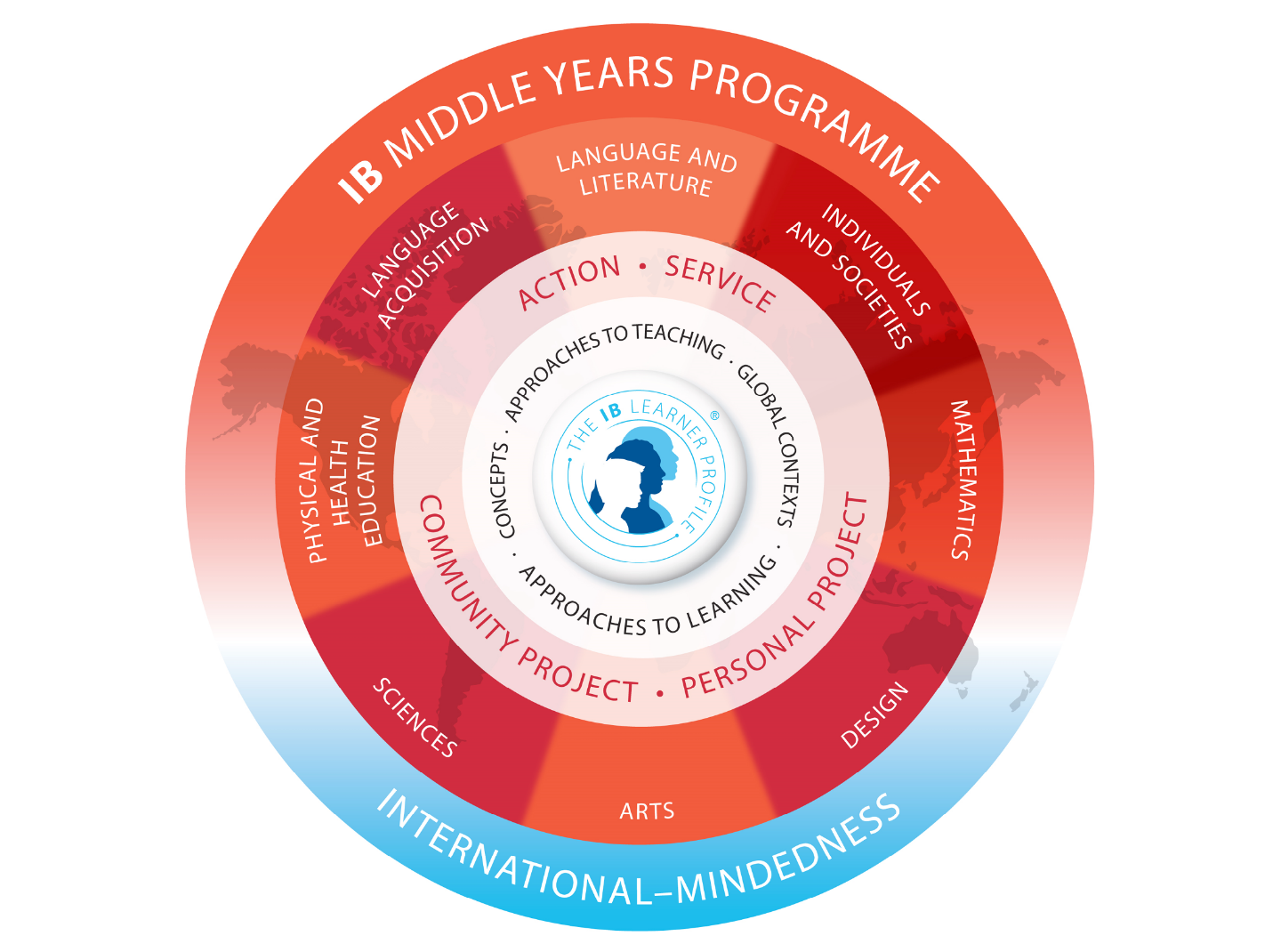Middle Years Programme MYP
What is the Middle Years Programme?
The Middle Years Programme (MYP) is a curriculum framework designed for learners aged
11–16 by the International Baccalaureate (IB) to make a sustained inquiry into various
disciplines and develop a conceptual understanding of the various global contexts,
enabling them to gain insights into various aspects of the world around them.
At D Vinci School – International, we strive to develop students’ international mindedness, motivation,
and being life-long learners who make a difference to our world.
In MYP classroom, you’ll notice that the students are at the centre of learning. They are drawing connections between all subject areas, learning is explicitly linked to the world around them, participation in a foreign language is required, and a variety of formal and informal assessments are used to inform teaching and learning. MYP learning experiences infuse global points of view wherever possible in order to promote understanding of other cultures, an awareness of the human condition and an understanding that there is a commonality of human experience.

The MYP curriculum framework comprises eight subject groups,
- English Language & Literature
- English Language Acquisition
- Individuals & Societies
- Sciences
- Mathematics
- Design
- Arts
- P&HE
- Including: Religion
providing a broad and balanced education for early adolescents. Students take the core courses of language and literature, individuals and societies, mathematics, sciences, physical and health education, language acquisition, arts, and design. A unique feature of the programme is that it extends the traditional curriculum to include immersion in four themes— approaches to teaching and approaches to learning, global contexts and concepts. Students also complete a personal project, which is an independent piece of work that may be an essay, an artistic production or another form of expression.
MYP Classrooms
Interdisciplinary Unit (IDU)
Interdisciplinary learning can take place between different subject groups and between different disciplines within a subject group to encourage broader perspectives on complex issues and deeper levels of analysis and synthesis. Interdisciplinary connections must be meaningful. Younger learners often make connections naturally between different areas of knowledge, in order to understand the world around them. In some cases, this is because they have not yet been socialized into the disciplinary perspectives that organize the academic world.
Assessment in the MYP:
The MYP assessment criteria across subject groups can be summarized as follow
MYP students are assessed in eight subject groups in all subjects
- 7 = Excellent
- 6 = Very good
- 5 = Good
- 4 = Satisfactory
- 3 = Mediocre
- 2 = Poor
- 1 = Very poor
Service in the MYP
Action and service have always been shared values of the IB community. Service as action is included in our planning process. Students take action when they apply what they are learning in the classroom and beyond. IB learners strive to be caring members of the community who demonstrate a commitment to service—making a positive difference to the lives of others and to the environment. Homeroom and Unit linked Service. Students through various activities meet the seven Learning Outcomes over a period of 5 years, across MY1- MY5 (Grade 6 to 10).
Approaches to learning
(ATL) provide the foundation for independent learning and encourage the application of their knowledge and skills in unfamiliar contexts. ATL
Personal Project
To show a culmination of the Middle Years' knowledge and skill set, MYP 5 (Grade 10) take on the Personal Project. They engage in a self-initiated learning process that allows them to work on their own preferred goals.
What are the aims of the MYP projects?
The aims of the MYP projects are to encourage and enable students to:
- participate in a sustained, self-directed inquiry within a global context
- generate creative new insights and develop deeper understandings through in-depth investigation
- demonstrate the skills, attitudes and knowledge required to complete a project over an extended period of time
- communicate effectively in a variety of situations
- demonstrate responsible action through, or as a result of, learning
- appreciate the process of learning and take pride in their accomplishments.


